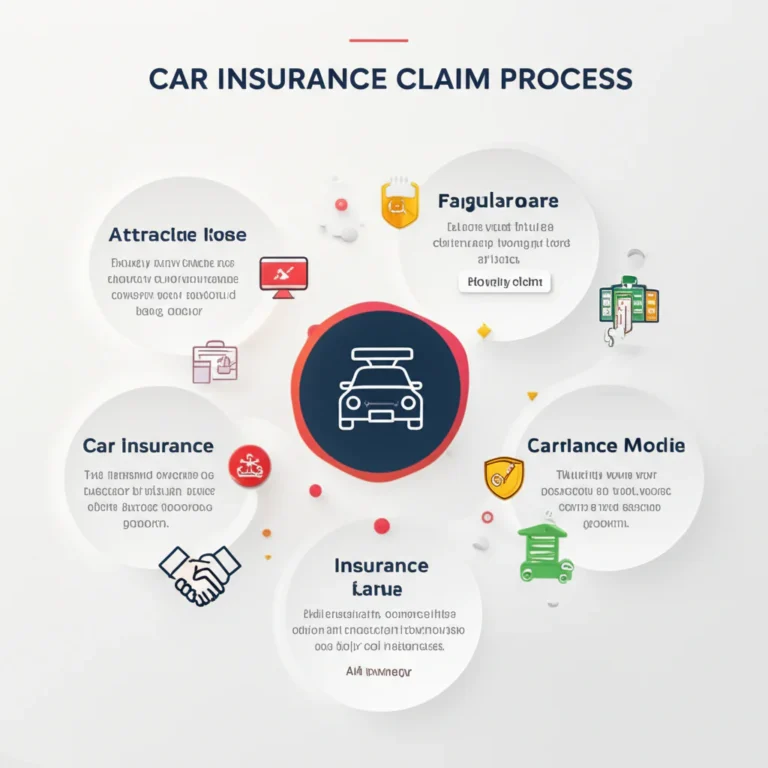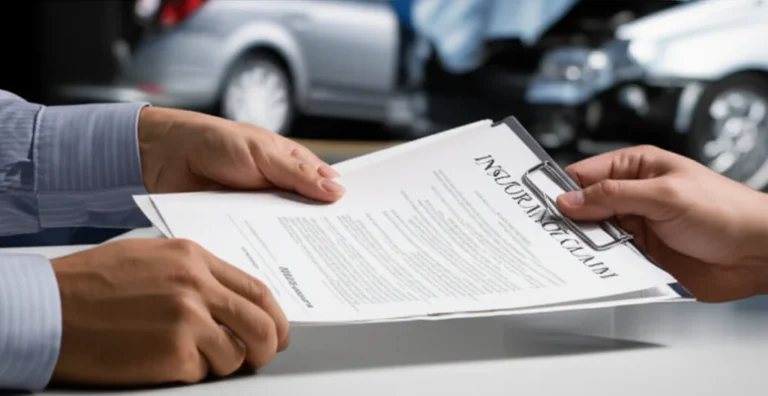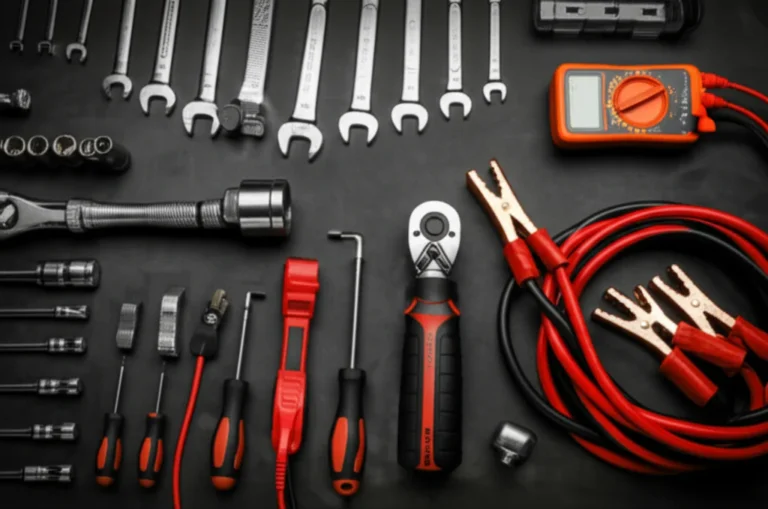Support our educational content for free when you purchase through links on our site. Learn more
7 Insider Secrets to Car Repair Estimates You Need to Know (2025) 🔧
Ever felt like you were handed a mysterious bill after a car repair, wondering how they arrived at that number? You’re not alone. Car repair estimates can feel like decoding a secret language—full of jargon, hidden fees, and confusing line items. But what if you could walk into any repair shop armed with insider knowledge that ensures you get a fair, transparent, and accurate estimate every time?
In this comprehensive guide, we’ll pull back the curtain on everything you need to know about car repair estimates in 2025. From understanding the difference between an estimate and a quote, to leveraging the best online tools like RepairPal and YourMechanic, to negotiating like a pro, we’ve got you covered. Curious why your neighbor’s estimate was half the price? Or how your car’s make and model secretly influence repair costs? Stick around—we’ll reveal all that and more, including how preventative maintenance can save you thousands down the road.
Key Takeaways
- Estimates are educated guesses, not fixed prices; always ask for itemized, written estimates.
- Get multiple estimates from different shops to compare diagnoses and pricing.
- Use trusted online estimators like RepairPal and Kelley Blue Book to set realistic expectations.
- Your car’s make, model, and location heavily influence labor rates and parts costs.
- Watch out for red flags like vague estimates, high-pressure upsells, and refusal to show old parts.
- Preventative maintenance is your best defense against costly repairs and surprise bills.
Ready to take control of your next repair? Let’s dive in!
Table of Contents
- ⚡️ Quick Tips and Facts: Your Fast Track to Smart Repair Decisions
- 🕰️ The Evolution of Auto Repair Pricing: From Grease Monkeys to Digital Diagnostics
- 🤔 What Exactly Is a Car Repair Estimate? Understanding the Basics
- Cracking the Code: What Makes a Car Repair Estimate Fair and Accurate? 🕵️ ♀️
- Your Toolkit for Getting the Best Estimate: Strategies & Secrets
- 1. The Power of Multiple Opinions: Why You Need More Than One Estimate 🤝
- 2. Leveraging Online Tools: The Best Auto Repair Estimators & How They Work 💻
- 3. The Art of Asking Questions: What to Discuss with Your Mechanic 🗣️
- 4. Spotting Red Flags: Warning Signs of a Shady Estimate 🚩
- 5. Negotiating Like a Pro: Tips for Saving Money on Repairs 💰
- Unmasking the Averages: National & Regional Car Repair Cost Insights 📊
- Brand-Specific Breakdown: How Your Car’s Make & Model Influences Repair Costs 🚗
- Beyond the Estimate: Other Factors Affecting Your Wallet
- Preventative Maintenance: Your Best Defense Against High Repair Estimates 🛡️
- Conclusion: Driving Away with Confidence (and a Fair Deal!) 🏁
- Recommended Links: Your Go-To Resources for Smart Car Ownership 🔗
- FAQ: Your Burning Questions About Car Repair Estimates, Answered 🔥
- Reference Links: Our Sources for Expert Insights 📚
Here is the main body of the article, written according to your specifications.
⚡️ Quick Tips and Facts: Your Fast Track to Smart Repair Decisions
Welcome to the garage! Before we tear down the engine on car repair estimates, let’s pop the hood for a quick look. If you’re in a hurry, this is your cheat sheet to avoiding a financial breakdown when your car has a mechanical one.
- An “Estimate” is a Guess 🧐: Remember, an estimate is a professional approximation of costs. It’s not a legally binding contract. A “quote” or “work order,” once signed, is the binding agreement.
- Labor is the Lion’s Share 🦁: Often, the majority of your bill isn’t the part itself, but the skilled labor required to install it. Labor rates can vary dramatically based on the shop’s location and specialty.
- Always Get a Second (or Third) Opinion 🕵️: Would you undergo surgery after consulting only one doctor? Probably not. Treat major car repairs the same way. Getting multiple estimates is your single best tool for ensuring a fair price.
- Online Estimators are Your Best Friend 💻: Tools from platforms like RepairPal and Kelley Blue Book provide a baseline for what you should be paying. Use them to walk into a shop armed with knowledge.
- OEM vs. Aftermarket Parts ⚙️: OEM (Original Equipment Manufacturer) parts are made by your car’s manufacturer (e.g., Ford, Honda). Aftermarket parts are made by third-party companies. Aftermarket is often cheaper, but quality can vary. Your estimate should specify which is being used.
- Don’t Forget the “Hidden” Fees 👻: As RepairPal points out, “RepairPal estimates do not include taxes, disposal fees, diagnostic charges, or other related repairs that may be necessary.” Always ask if these are included in your initial estimate.
- Ask About Warranties ✅: Reputable shops will offer a warranty on both parts and labor. YourMechanic, for instance, backs their services with a 12-month, 12,000-mile warranty. This is a huge sign of confidence in their work.
🕰️ The Evolution of Auto Repair Pricing: From Grease Monkeys to Digital Diagnostics
Ever wonder how your grandpa paid for car repairs? It probably involved a handshake and a much, much smaller bill. Back in the day, cars were simpler beasts. A good mechanic could diagnose a problem with their ears, a wrench, and a bit of intuition. Pricing was often a straightforward calculation of hours spent plus the cost of a simple part. You can explore more about how these iconic brands started in our Car Brand Histories section.
Fast forward to today. Your modern vehicle is a rolling supercomputer with dozens of interconnected modules, sensors, and complex software. That “check engine” light isn’t just a light; it’s a signal from a sophisticated onboard diagnostic system (OBD-II) that requires specialized tools and knowledge to decipher.
This technological leap has transformed the auto repair landscape. The “grease monkey” has evolved into a highly trained technician who is part mechanic, part IT specialist. Consequently, the process of estimating repairs has become far more complex, relying on extensive databases for labor times, intricate parts catalogs, and advanced diagnostic procedures. It’s a whole new ball game, folks!
🤔 What Exactly Is a Car Repair Estimate? Understanding the Basics
Let’s get down to brass tacks. A car repair estimate is a document that outlines the anticipated costs to fix your vehicle. It’s the shop’s educated guess based on an initial inspection or diagnosis. Think of it as a proposal, not a final invoice. The goal is to give you a clear picture of the potential financial damage before you commit to the work.
Estimate vs. Quote: The Crucial Difference You Need to Know 📝
This is where many car owners get tripped up. The terms “estimate” and “quote” are often used interchangeably, but they mean very different things. Confusing them can lead to nasty surprises when the final bill arrives.
| Feature | Estimate | Quote (or Work Order) |
|---|---|---|
| Nature | An educated guess; an approximation of cost. | A fixed-price offer for a specific job. |
| Flexibility | The final price can change if unexpected issues arise. | The price is generally locked in, barring major unforeseen discoveries. |
| Legal Standing | Not legally binding. | Becomes a legally binding contract once you sign it. |
| Best For… | Initial diagnosis where the full extent of the problem is unknown. | Clearly defined jobs where all variables are known (e.g., brake pad replacement). |
Our advice: Always ask for a written estimate first. Once you’ve discussed it, understood it, and agreed to the work, ensure you are signing a detailed work order or quote that reflects that understanding.
The Anatomy of an Estimate: Decoding the Line Items 🔍
A proper estimate should be more than just a number scribbled on a napkin. It should be a detailed, itemized document. Let’s break down the typical sections:
- Customer & Vehicle Information: Your name, contact info, and your car’s VIN, make, model, and year.
- Parts: This section lists every single part needed for the repair. It should include part numbers, quantities, the price per part, and whether they are OEM, aftermarket, or remanufactured.
- Labor: This details the work the technician will perform. It’s usually calculated in hours, multiplied by the shop’s hourly labor rate. Many shops use a “flat-rate” manual that standardizes the time a specific job should take.
- 👉 Shop Supplies/Sundries: A small fee to cover miscellaneous items like rags, lubricants, and cleaning supplies. This is common, but it shouldn’t be an exorbitant percentage of the bill.
- Subtotal: The sum of parts and labor.
- Taxes & Fees: Includes sales tax on parts and any state-mandated environmental or disposal fees.
- Grand Total: The final estimated cost you’re looking at.
Never accept an estimate that just gives you a total. Demand an itemized breakdown. It’s your right as a consumer and the only way to know what you’re truly paying for.
Cracking the Code: What Makes a Car Repair Estimate Fair and Accurate? 🕵️ ♀️
So, you have an estimate in your hand. How do you know if it’s fair? Is the shop giving you a square deal or taking you for a ride? The “fairness” of an estimate hinges on a few key components.
The Mechanic’s Math: How Shops Calculate Your Repair Costs ➕
Understanding how a shop arrives at its numbers demystifies the process. It’s not magic; it’s math.
- Labor Rate: This is the shop’s hourly charge for a technician’s time. It varies wildly based on location, the technician’s certifications (like ASE), and the shop’s overhead. A dealership in a major city will have a much higher rate than a small independent shop in a rural town.
- Labor Time: Shops typically use standardized guides, like those from Mitchell 1 or Alldata, which provide the “flat-rate” time for almost any repair on any vehicle. If the guide says a water pump replacement on your Chevrolet Silverado takes 3.2 hours, that’s what you’ll be billed for, even if their star technician finishes it in 2.5 hours.
- Parts Markup: The shop buys parts at a wholesale price and sells them to you at a retail price. This markup covers the cost of sourcing, ordering, and stocking the parts. The percentage of markup depends on the part and whether it’s OEM or aftermarket. As RepairPal notes, a key factor in estimate ranges is the “difference in parts pricing between OEM and aftermarket.”
Why Estimates Vary Wildly: Factors Influencing Your Final Bill 💸
You got three estimates for the same job, and the prices are all over the map. What gives? Here are the culprits behind the price discrepancies:
- 👉 Shop Type: A manufacturer dealership (e.g., Volkswagen) often has higher labor rates and primarily uses more expensive OEM parts. An independent shop may have lower rates and offer you the choice of aftermarket parts.
- Parts Choice: An estimate using OEM parts will always be higher than one using aftermarket or remanufactured parts.
- Technician Skill: A shop with highly experienced, certified technicians may charge more, but their diagnostic accuracy and quality of work can save you money in the long run.
- Diagnostic Thoroughness: One shop might give you a quick, lowball estimate based on symptoms, while another performs a comprehensive diagnostic (for a fee) and provides a more accurate, and possibly higher, estimate that includes related issues the first shop missed.
- Location, Location, Location: Just like real estate, auto repair costs are heavily influenced by geography. Operating costs in New York City are vastly different from those in Omaha, Nebraska, and labor rates reflect that.
Your Toolkit for Getting the Best Estimate: Strategies & Secrets
Knowledge is power, and in the world of auto repair, it’s also money saved. It’s time to arm yourself with the strategies the pros use to get a fair shake every time. This is where you stop being a passive customer and start being an active advocate for your car and your wallet.
1. The Power of Multiple Opinions: Why You Need More Than One Estimate 🤝
We can’t stress this enough: never, ever accept the first estimate you receive for a significant repair. Getting at least three written estimates from different types of shops (e.g., a dealership, a trusted local independent, and a reputable chain) is the golden rule.
Why? It allows you to:
- Establish a price baseline: You’ll quickly see the average cost for the job in your area.
- Compare diagnoses: Did all three shops identify the same problem? If one shop’s diagnosis is wildly different, it’s a major red flag.
- Gauge customer service: How did each shop treat you? Did they explain the problem clearly and patiently answer your questions?
- Identify outliers: One estimate that’s drastically higher or lower than the others deserves extra scrutiny. A lowball offer might mean they’re using cheap parts or will surprise you with “unexpected” costs later.
2. Leveraging Online Tools: The Best Auto Repair Estimators & How They Work 💻
Before you even speak to a mechanic, you should have a ballpark figure in your head. This is where online estimators are invaluable. They use massive databases of parts prices and labor times to give you a localized estimate for your specific vehicle and repair.
Here’s a look at our top picks:
| Online Estimator | Ease of Use (1-10) | Accuracy (1-10) | Features | Best For |
|---|---|---|---|---|
| RepairPal | 9 | 8 | Fair Price Guarantee, Certified Shop Network, User Reviews | Getting a reliable, localized price range and finding trusted shops. |
| Kelley Blue Book (KBB) | 8 | 8 | Fair Repair Range, Shop Appointments, Recall Checks | Cross-referencing prices and understanding what’s considered “fair” in your market. |
| AAA | 7 | 7 | Member Discounts, Approved Auto Repair Network, Maintenance Schedules | AAA members looking for trusted shops and potential savings. |
| YourMechanic | 9 | 8 | Upfront Pricing, Mobile Mechanic Service, Online Booking | Convenient at-home or at-office repairs with transparent pricing. |
As the host of the featured video on this topic explains, using a site like RepairPal.com can save you “hours by not having to call random shops asking for an estimate.” He demonstrates how these tools break down the cost into parts and labor, empowering you to understand the numbers before you’re standing at the service counter.
👉 CHECK PRICE on:
- RepairPal: Get a Free Estimate
- Kelley Blue Book: Auto Repair Guide
- AAA: Repair Cost Estimator
- YourMechanic: Instant Online Estimates
3. The Art of Asking Questions: What to Discuss with Your Mechanic 🗣️
A good mechanic will welcome your questions. A shady one will get defensive. Here’s your script:
- “Could you please show me the problem on the car?”
- “Is this repair essential for the safety and operation of the vehicle, or is it recommended maintenance?”
- “What is your shop’s hourly labor rate?”
- “Are you using OEM, aftermarket, or remanufactured parts? Can I see the price difference?”
- “What kind of warranty do you offer on this repair?”
- “Does this estimate include all taxes and fees, or will there be other charges?”
- “If the final cost is going to be more than 10% higher than this estimate, will you call me for approval first?” (Many states legally require this!)
4. Spotting Red Flags: Warning Signs of a Shady Estimate 🚩
Trust your gut. If something feels off, it probably is. Watch out for these warning signs:
- ❌ Vague or verbal-only estimates: If they won’t put it in writing, walk away.
- ❌ High-pressure tactics: “You need to do this today or your car will explode!” Scare tactics are a classic sign of an upsell.
- ❌ Refusal to show you the old parts: You have a right to see the parts that were replaced.
- ❌ Unnecessary flushes and additives: As AAA wisely cautions, “An auto repair facility recommending additional non-scheduled maintenance services without completing a professional diagnostic inspection… may be selling you something your car does not necessarily need.”
- ❌ A “free” inspection that uncovers a laundry list of expensive problems.
5. Negotiating Like a Pro: Tips for Saving Money on Repairs 💰
You don’t have to be a master haggler to save some cash. Try these respectful approaches:
- Ask if they can match a competitor’s written estimate.
- Inquire about using aftermarket parts instead of OEM to lower the cost.
- Ask if there are any current discounts or coupons available.
- If multiple repairs are needed, ask if they can offer a package deal or prioritize the most critical ones to defer some costs.
Unmasking the Averages: National & Regional Car Repair Cost Insights 📊
The cost of a specific repair isn’t a fixed number across the country. A water pump replacement on a Ford F-150 in San Francisco will cost significantly more than the same job in rural Arkansas. This is a critical piece of the puzzle when evaluating your estimate.
Geographic Impact: How Location Affects Labor Rates 🗺️
The primary driver of regional price differences is the shop’s hourly labor rate. This rate is determined by the local cost of living and doing business. Factors include:
- 👉 Shop rent and property taxes
- Technician wages and benefits
- Utility costs
- Local market competition
This is why online estimators that require your zip code are so valuable. They adjust their calculations based on the economic realities of your specific area, giving you a much more accurate picture than a generic national average. You can see how different brands perform in different regions by checking out our Car Brand Market Shares analysis.
Brand-Specific Breakdown: How Your Car’s Make & Model Influences Repair Costs 🚗
Let’s be blunt: not all cars are created equal when it comes to repair bills. The logo on your grille has a massive impact on what you’ll pay to keep it on the road. This is a topic we dive into frequently in our Car Brand Comparisons.
Luxury vs. Economy: The Price Tag of Parts and Expertise 💎
There’s a reason it’s called the “cost of ownership.” Driving a luxury or performance brand like a Porsche or a BMW comes with a premium at the service center.
- Parts Cost: OEM parts for German luxury brands are notoriously expensive compared to their Japanese or American counterparts. An alternator for a Toyota Camry might cost a fraction of a similar part for a Mercedes-Benz S-Class.
- Labor Complexity: These vehicles are often engineered with tightly packed engine bays and complex systems that require specialized tools and more time to disassemble and reassemble, driving up labor hours.
- Specialized Knowledge: Fewer technicians have the high-level training required to work on these complex machines, meaning the ones who do can command a higher labor rate.
Common Repairs by Vehicle Type: What to Expect 🛠️
Different types of vehicles have different common failure points.
- SUVs & Trucks: Often see more wear and tear on suspension components (ball joints, shocks) and brakes due to their weight.
- Compact & Economy Cars: While generally cheaper to repair, they can sometimes have issues with transmissions or engine components if not diligently maintained.
- Hybrid & Electric Vehicles (EVs): Have unique needs. While you won’t pay for oil changes, you could face costly repairs for battery packs or complex electric powertrain components down the line.
Beyond the Estimate: Other Factors Affecting Your Wallet
The written estimate is the main event, but several other factors can influence your total out-of-pocket cost. Don’t get blindsided by these additional considerations.
The Role of Diagnostics: Why You Pay for the “Look-See” 🩺
“Can’t you just tell me what’s wrong with it?” We hear this all the time. With modern cars, a simple visual inspection often isn’t enough. That pesky check engine light could be triggered by one of hundreds of potential faults.
A diagnostic fee pays for the technician’s time and the use of sophisticated scanning equipment to accurately pinpoint the problem. Paying for a proper diagnosis is an investment. It prevents you from throwing money at parts you don’t need and ensures the root cause of the issue is fixed the first time. Remember, this fee is often separate from the repair estimate itself.
Warranty Woes & Wonders: How Your Coverage Impacts Repair Bills 🛡️
Before you approve any work, check your glove box!
- Manufacturer’s Warranty: If your car is still under its original factory warranty (powertrain or bumper-to-bumper), the repair might be covered at no cost to you, provided you go to an authorized dealership.
- Extended Warranty/Service Contract: If you purchased an extended warranty, read the fine print. Understand your deductible and exactly which components are covered.
- Repair Shop Warranty: After the repair is done, the shop should provide its own warranty on the work. As mentioned, YourMechanic offers a 12-month/12,000-mile warranty, which is a strong standard.
Navigating Insurance Claims: When Your Policy Steps In 📄
If the damage is the result of an accident, theft, or another covered event, your auto insurance policy will be your primary source of payment. The process typically involves getting an estimate from an approved body shop, an adjuster reviewing the damage, and you paying your deductible. This is a different beast from mechanical repairs, but the principle of getting a clear, itemized estimate remains crucial.
DIY vs. Professional: When to Grab the Wrench, When to Call a Pro 🔧
We love a good DIY project. Changing your own oil or replacing an air filter can be satisfying and save you money. But it’s critical to know your limits.
Good DIY Projects ✅:
- Oil and filter changes
- Wiper blade replacement
- Air filter replacement
- Battery replacement
Call a Pro ❌:
- Brake system repairs
- Timing belt replacement
- Transmission work
- Anything involving airbags or major electronic systems
A key point from the featured video is that if you buy your own parts to save money, “a lot of the service facilities… if you take them the part, they will not go ahead and warranty the part or sometimes even the work.” The potential savings of buying your own parts can be wiped out if the shop won’t stand behind the repair.
Preventative Maintenance: Your Best Defense Against High Repair Estimates 🛡️
Want to know the absolute best way to avoid shocking repair estimates? It’s simple: maintain your car. Following your vehicle’s recommended service schedule is the most effective strategy for preventing small issues from snowballing into catastrophic, wallet-draining failures. Our comprehensive guide to car repairs is your first and best resource.
As AAA points out, “Regular maintenance is crucial for keeping a car running well and extending its lifespan.” It’s not an expense; it’s an investment in your vehicle’s health and your financial peace of mind.
Essential Checks to Keep Your Car Healthy & Your Wallet Happy 😊
- Regular Oil Changes: This is the lifeblood of your engine. Don’t skip them.
- Tire Pressure & Rotation: Proper inflation and regular rotation extend the life of your tires and improve fuel economy.
- Fluid Checks: Regularly check your coolant, brake fluid, power steering fluid, and windshield washer fluid.
- Brake Inspections: Have your brakes checked at least once a year.
- Filter Replacements: Engine and cabin air filters are easy and inexpensive to replace and have a big impact on performance and air quality.
By staying on top of these simple tasks, you’re not just maintaining your car; you’re actively managing your future repair costs.
Conclusion: Driving Away with Confidence (and a Fair Deal!) 🏁

Navigating the maze of car repair estimates can feel like decoding a secret language — but now, you’re equipped with the translator’s toolkit. From understanding the difference between an estimate and a quote, to leveraging online tools like RepairPal and YourMechanic, you can confidently approach any repair shop knowing what to expect and how to advocate for yourself.
Remember, getting multiple estimates is your best defense against overpaying, and asking the right questions can save you from unnecessary repairs or hidden fees. Whether you drive a rugged Ford F-150 or a sleek BMW, your car’s make and model will influence repair costs, but knowledge is your equalizer.
Finally, don’t underestimate the power of preventative maintenance — it’s your best bet to keep repair estimates low and your car humming happily for years.
So next time your check engine light flickers, you won’t just be a passenger in the repair process — you’ll be the driver steering toward a fair, transparent, and stress-free experience.
Recommended Links: Your Go-To Resources for Smart Car Ownership 🔗
Ready to start comparing estimates or book your next repair? Here are some trusted platforms to help you get the best deal and service:
- RepairPal Fair Price Estimator: Get a Free Estimate | RepairPal Certified Shops
- Kelley Blue Book Auto Repair Guide: Explore Repair Costs
- AAA Approved Auto Repair: Find a Shop Near You
- YourMechanic Mobile Mechanic Service: Instant Online Estimates & Booking
👉 Shop Brands on:
- Ford: TrueCar Ford Inventory
- BMW: BMW USA Official
- Toyota: Toyota Official Site
- Mercedes-Benz: Mercedes-Benz USA
FAQ: Your Burning Questions About Car Repair Estimates, Answered 🔥

How accurate are car repair estimates from different shops?
Estimates vary in accuracy depending on the shop’s diagnostic thoroughness, experience, and transparency. Dealerships often provide more precise estimates for their brand but at higher labor rates. Independent shops may offer competitive pricing but sometimes less detailed diagnostics. Online estimators like RepairPal provide a reliable price range based on aggregated data, but they cannot account for every unique circumstance. Always get multiple estimates and ask for itemized breakdowns to gauge accuracy.
What factors influence the cost of a car repair estimate?
Several key factors affect your estimate:
- Labor rates: Vary by location and shop type.
- Parts choice: OEM parts cost more than aftermarket or remanufactured.
- Vehicle make and model: Luxury and performance cars usually cost more to repair.
- Diagnostic complexity: Modern cars require advanced diagnostics, which add to costs.
- 👉 Shop overhead: Larger shops or dealerships have higher operating costs.
- Additional fees: Taxes, disposal fees, and shop supplies may not be included in initial estimates.
Can I get a car repair estimate online before visiting a mechanic?
✅ Absolutely! Platforms like YourMechanic, RepairPal, and Kelley Blue Book offer free online estimators that provide localized price ranges based on your vehicle’s make, model, year, and the repair needed. These tools help you set expectations and prepare questions before visiting a shop.
How do insurance companies use car repair estimates?
Insurance companies rely on repair estimates to determine claim payouts for accident-related damages. They often require estimates from approved or preferred shops and may send an adjuster to verify damage. The estimate helps calculate your deductible and the insurer’s liability. It’s crucial to provide detailed, itemized estimates to avoid disputes or delays in claims processing.
What should I look for in a detailed car repair estimate?
A comprehensive estimate should include:
- Customer and vehicle information
- Itemized list of parts (with OEM or aftermarket designation)
- Labor hours and hourly rate
- Additional fees (taxes, disposal, shop supplies)
- Warranty information on parts and labor
- Clear terms about approval for additional repairs or costs
Avoid vague or verbal-only estimates, and insist on written documentation.
Read more about “How to Find 12 Reliable Mechanics for Your Car Repairs (2025) 🔧”
How long does it take to get a car repair estimate?
It depends on the complexity of the problem. Simple repairs might be estimated within 30 minutes to an hour after a visual inspection. Complex diagnostics, especially involving electronic systems, can take several hours or require a diagnostic fee. Online estimators provide instant ballpark figures, but in-person estimates are generally more accurate.
Are free car repair estimates reliable for budgeting repairs?
Free estimates from reputable sources are reliable for budgeting but should be treated as approximations. They provide a useful price range but may not include hidden fees or additional repairs discovered during the job. Always confirm with the shop what is included and ask for updates if the scope changes.
Read more about “🚗 Vehicle Repair Costs Uncovered: 15 Must-Know Facts for 2025”
Reference Links: Our Sources for Expert Insights 📚
- RepairPal Fair Price Estimator — Comprehensive database of repair costs and certified shops.
- AAA Car Repair Estimates — Trusted auto repair network and maintenance tips.
- YourMechanic Instant Auto Repair Estimates — Mobile mechanic service with upfront pricing.
- Kelley Blue Book Auto Repair Guide — Industry-standard vehicle valuation and repair cost data.
- Ford Official Website
- BMW USA Official Website
- Toyota Official Website
- Mercedes-Benz USA
For more expert advice on car repairs and maintenance, check out our detailed guide at Car Brands™ Car Repairs.
With these insights, you’re ready to tackle your next car repair estimate with confidence and savvy. Safe travels! 🚗💨







